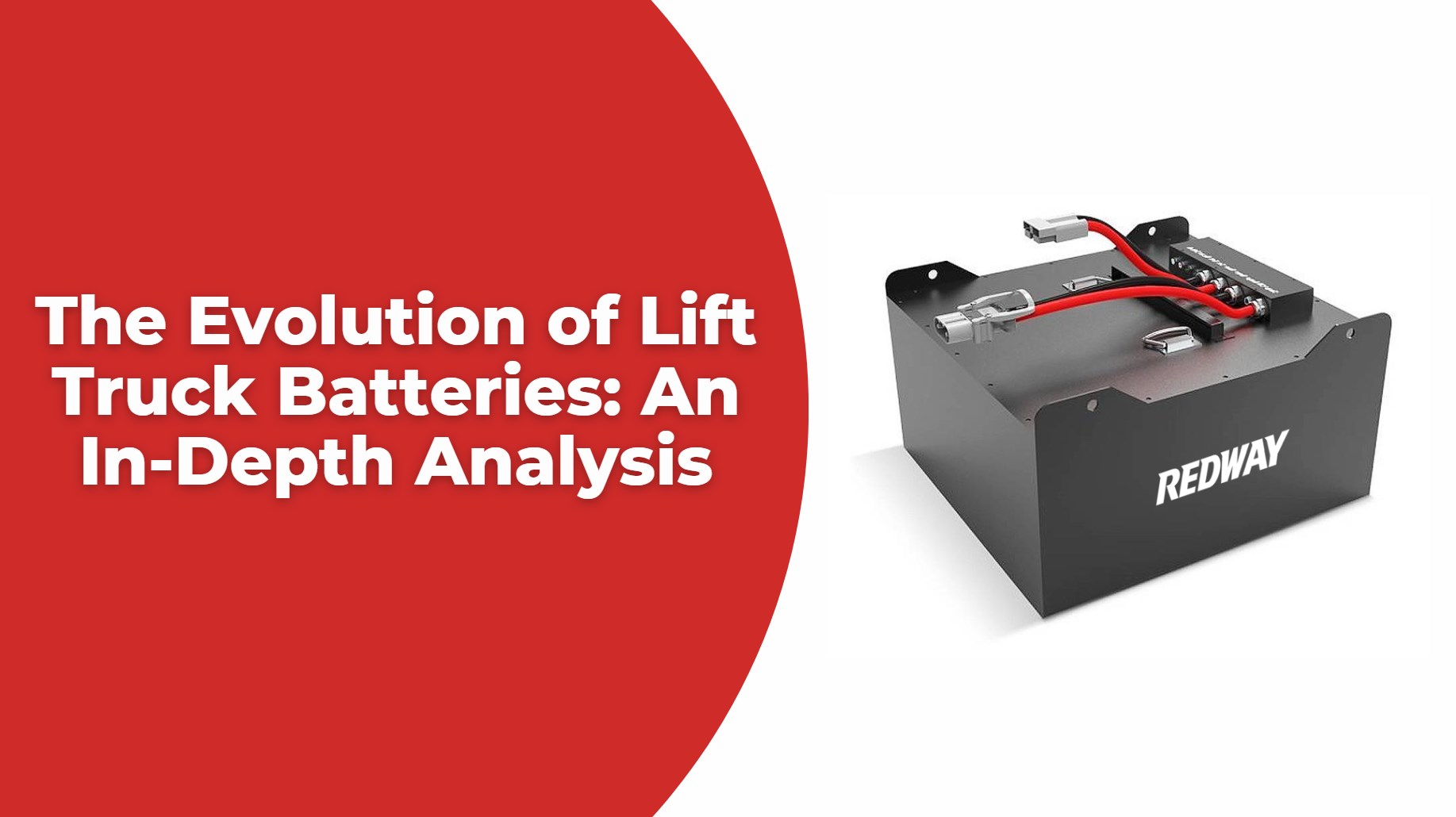The evolution of lift truck batteries has been a transformative journey, significantly impacting the efficiency and performance of material handling operations. As industries evolve, so do the technologies that power them. This article explores the advancements in lift truck battery technology, focusing on the transition from traditional lead-acid batteries to modern lithium-ion solutions.
Understanding Lift Truck Batteries
Lift truck batteries are crucial for powering electric forklifts and other material handling equipment. The two primary types of batteries used in this sector are lead-acid and lithium-ion batteries. Each type has its unique characteristics, advantages, and limitations.
Lead-Acid Batteries
Lead-acid batteries have long been the standard in the lift truck industry. They are known for their reliability and relatively low initial cost. However, they come with several drawbacks:
- Charging Time: Lead-acid batteries typically require 8 hours to charge fully and an additional cooling period.
- Maintenance Needs: These batteries require regular maintenance, including checking electrolyte levels and cleaning terminals.
- Weight: Lead-acid batteries are heavier, which can impact the overall efficiency of the lift truck.
Lithium-Ion Batteries
Lithium-ion batteries have emerged as a superior alternative, gaining traction in the lift truck market due to their numerous benefits:
- Faster Charging: Lithium-ion batteries can be charged in as little as 1 hour, allowing for opportunity charging during breaks.
- Longer Lifespan: With a lifespan of approximately 3,000 cycles compared to 500-1,000 cycles for lead-acid batteries, lithium-ion options offer better longevity.
- Lower Maintenance: These batteries are maintenance-free and do not require regular checks like their lead-acid counterparts.
Key Advantages of Lithium-Ion Batteries
1. Higher Energy Density
Lithium-ion batteries have a significantly higher energy density than lead-acid batteries. This means they can store more energy in a smaller and lighter package. For example, lithium-ion batteries can provide between 260 to 270 Wh/kg compared to lead-acid’s 50 to 100 Wh/kg.
2. Opportunity Charging
One of the most significant advantages of lithium-ion technology is the ability to charge during short breaks without affecting operational efficiency. This capability allows for continuous operation in high-demand environments.
3. Improved Efficiency
Lithium-ion batteries operate at higher efficiencies than lead-acid options. They produce less heat during charging and discharging processes, which enhances overall performance and reduces energy waste.
4. Reduced Downtime
With faster charging times and less maintenance required, lithium-ion batteries help minimize downtime in operations. This leads to increased productivity and reduced operational costs.
Challenges in Transitioning to Lithium-Ion Batteries
Despite their advantages, transitioning from lead-acid to lithium-ion batteries presents challenges:
1. Higher Initial Costs
Lithium-ion batteries typically cost 2.5 to 3 times more upfront than lead-acid options. However, this investment can be offset by lower maintenance costs and longer lifespans over time.
2. Infrastructure Requirements
Adopting lithium-ion technology may necessitate upgrades to charging infrastructure to handle higher power demands. Facilities may need to install new chargers and electrical systems.
3. Training Needs
Operators may require training on how to manage lithium-ion battery systems effectively, including understanding charging protocols and safety measures.
Future Trends in Lift Truck Battery Technology
The evolution of lift truck battery technology is ongoing, with several trends shaping its future:
1. Smart Battery Management Systems
Innovative battery management systems (BMS) are being developed that utilize IoT technology for real-time monitoring and predictive maintenance. These systems enhance battery performance by optimizing charging cycles and extending lifespan.
2. Inductive Charging Technology
Inductive charging is gaining attention as a potential future solution for lift trucks. This technology allows for wireless charging through electromagnetic fields, reducing wear on connectors and improving convenience.
3. Sustainability Initiatives
As industries focus on sustainability, manufacturers are exploring eco-friendly materials and recycling methods for battery production and disposal. This shift aims to reduce environmental impact while maintaining performance standards.
Comparative Analysis: Lead-Acid vs. Lithium-Ion Batteries
| Feature | Lead-Acid Batteries | Lithium-Ion Batteries |
|---|---|---|
| Lifespan | 500-1,000 cycles | Up to 3,000 cycles |
| Charging Time | 8 hours | 1-2 hours |
| Maintenance | Regular maintenance needed | Maintenance-free |
| Energy Density | 50-100 Wh/kg | 260-270 Wh/kg |
| Weight | Heavier | Lighter |
Latest News
Recent developments in lift truck battery technology highlight significant advancements:
- As of October 2024, lithium-ion battery adoption in material handling has surged due to increased demand for efficient electric forklifts.
- Innovations in smart charging systems are enhancing battery management capabilities across various industries.
- Companies are investing in sustainable practices for battery production and recycling, aligning with global environmental goals.
Redway Expert Comment
In our experience at Redway Power, the transition from lead-acid to lithium-ion batteries represents a significant leap forward for the lift truck industry. The advantages of lithium technology—such as faster charging times and longer lifespans—are compelling reasons for businesses to make the switch. However, it’s essential to consider infrastructure needs and training requirements during this transition.”



